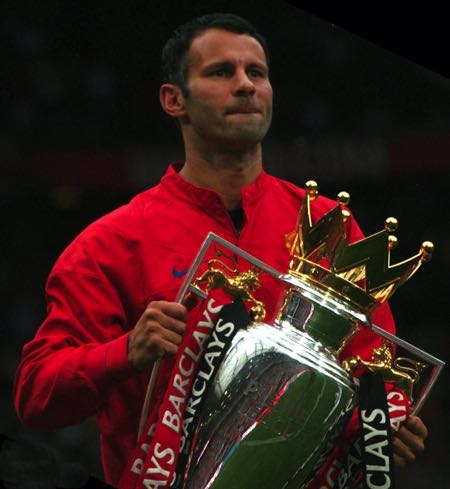Many people in full-time employment seek pastures new from time to time. You might have a disagreement with a manager or a colleague, seek better pay or conditions, or simply desire a change of scene and a fresh start. If you have a series of new jobs in a relatively short space of time, eyebrows might be raised – there will certainly be some awkward questions asked about the lengthy nature of your CV, anyway.
In football, those who move around liberally are labelled with derogatory terms – mercenary might be one if they are simply moving for more money, particularly to one of the sport’s new cash-rich frontiers like Saudi Arabia. Or, they might be given another moniker: a journeyman, which is insulting in its own lower-key way.
Definition of a Journeymen in Football
You may have read our article on this very site about the Bosman Ruling, a moment that would change the face of football forever. It brought the beautiful game in line with other industries, meaning that players have complete freedom to move from one club to another – as long as they conform to contract law, of course. A journeyman then is a player who has played for many clubs throughout their professional career. It is a player that enjoys the full fruits of this freedom will rack up club after club – it’s not uncommon for the most unscrupulous journeymen to have five, six or more clubs (or 29, more on that shortly) in their career over the span of 15-20 years.
Why does a journeyman find themselves constantly on the move? If you were feeling generous, you might say they’re simply the victims of bad luck or circumstance – maybe they’ve signed for a series of clubs that have been relegated, and thus had to cut costs the following season, or for sides that have sacked their manager; often, new bosses want to bring in their own players to work with.
If you were in a more caustic mood, you might suggest journeymen make their moves purely for financial reasons. They may be in receipt of a pay rise or bigger bonuses at their new club, while it’s worth remembering that some players will be paid signing-on bonuses when they join a team – more moves equals more bonus bounty. And, we must point some of the finger of blame at agents, who of course get a cut of every transfer that their clients make. Often persuasive and influential figures, agents aren’t all that keen on their clientele setting down roots in one place for too long.
Which Footballer Has Had the Most Clubs?

Five? Eight? Fifteen? We all probably have our own feeling about how many clubs would constitute a journeyman. But 29? Yep, that definitely ticks the box.
Trevor Benjamin
Trevor Benjamin is often described as English football’s greatest journeyman, a 17-year career taking him from Cambridge to Leicester, from Coventry to Peterborough, from Northampton to Hereford, in what can only be described as a one-man raid on the middle section of the country. But we have some sympathy for the striker, because he *only* had 18 permanent clubs on his CV – the other eleven were loan moves that he might not have had much say over.
Lutz Pfannestiel
If we’re talking about the football’s most-travelled journeymen, few have logged as many air miles as Lutz Pfannestiel. In his playing days, he was a goalkeeper whose career spanned 20 years, but most impressive is that he is – at the time of writing – the only former player to have been signed by clubs in all six of FIFA’s confederations.
He started out in his native Germany (UEFA), had a season with Penang in Malaysia (AFC), spent time with African clubs Orlando Pirates and Ramblers (CAF), had two stints in Dunedin, New Zealand (OFC), had a couple of turns in the United States (CONCACAF) before the 20th permanent move of his career took Pfannestiel to Brazil (CONMEBOL), completing football’s most unlikely bingo card. A man with a clear wanderlust, Pfannestiel has since moved into coaching – where he’s currently racked up stints on four different continents and counting!
Jefferson Louis
Perhaps our favourite football journeyman is Jefferson Louis, who by our math made an incredible 45 permanent moves in his career. Many of those were at non-league level, where he would seemingly have six-month stints at will before moving on again. Louis did, however, sign a handful of professional contracts with the likes of Bristol Rovers, Oxford United and Mansfield Town, while winning a solitary international cap for Dominica.
Which Footballers Have Only Played for One Club?

At the other end of the spectrum to the journeyman is the one-club man, which is exactly as the name suggests. Some players can go 15-20 years – and hundreds of appearances – with the same club, feeling perfectly at home and with no interest in seeking pastures new.
Ryan Giggs is one of the most notable examples of a one-club man. He burst through the youth ranks at Manchester United, became a fixture of Sir Alex Ferguson’s all-conquering team and ended up making a whopping 672 appearances for the Red Devils – winning 34 trophies – over a 24-year span. mAnother is the iconic Paolo Maldini, whose incredible 25-year career never saw him longing for employment outside of AC Milan, where he made 647 appearances and won 23 trophies, including five European Cups/Champions Leagues and seven Serie A titles.
A diverse array of world-class talent, including Francesco Totti, Franco Baresi and Paul Scholes, are also members of the one-club, erm, club. But even this gang of footballing superstars can’t lay a glove on perhaps the greatest one-club man in history. Sait Altinordu is not a world-renowned player, so don’t feel bad if you’ve never heard of him, but he is the proud owner of one of the most remarkable feats in club football.
He played for 27 years for his namesake club, Altinordu SK – which in itself is incredible longevity for an outfield player. Not only that, Altinordu made some 847 appearances for the club – nobody, as per our research, has ever played as many games as that for a single team.

